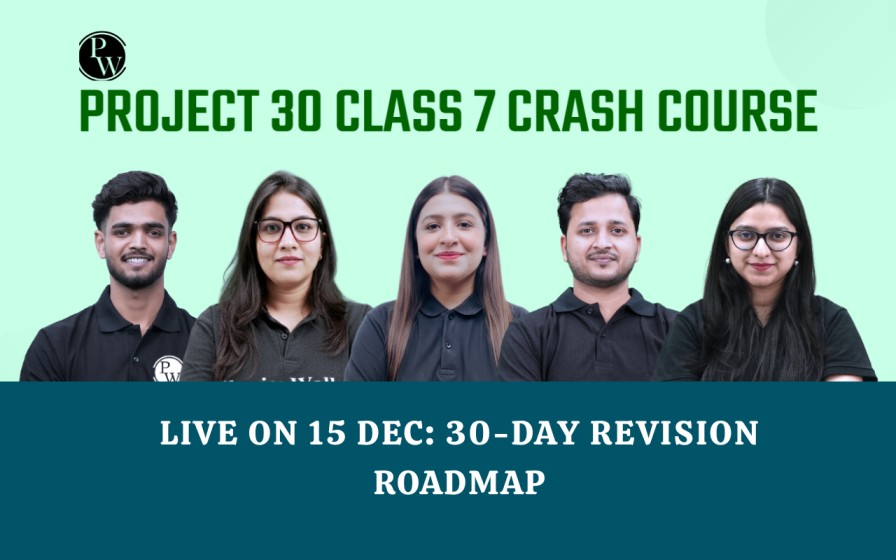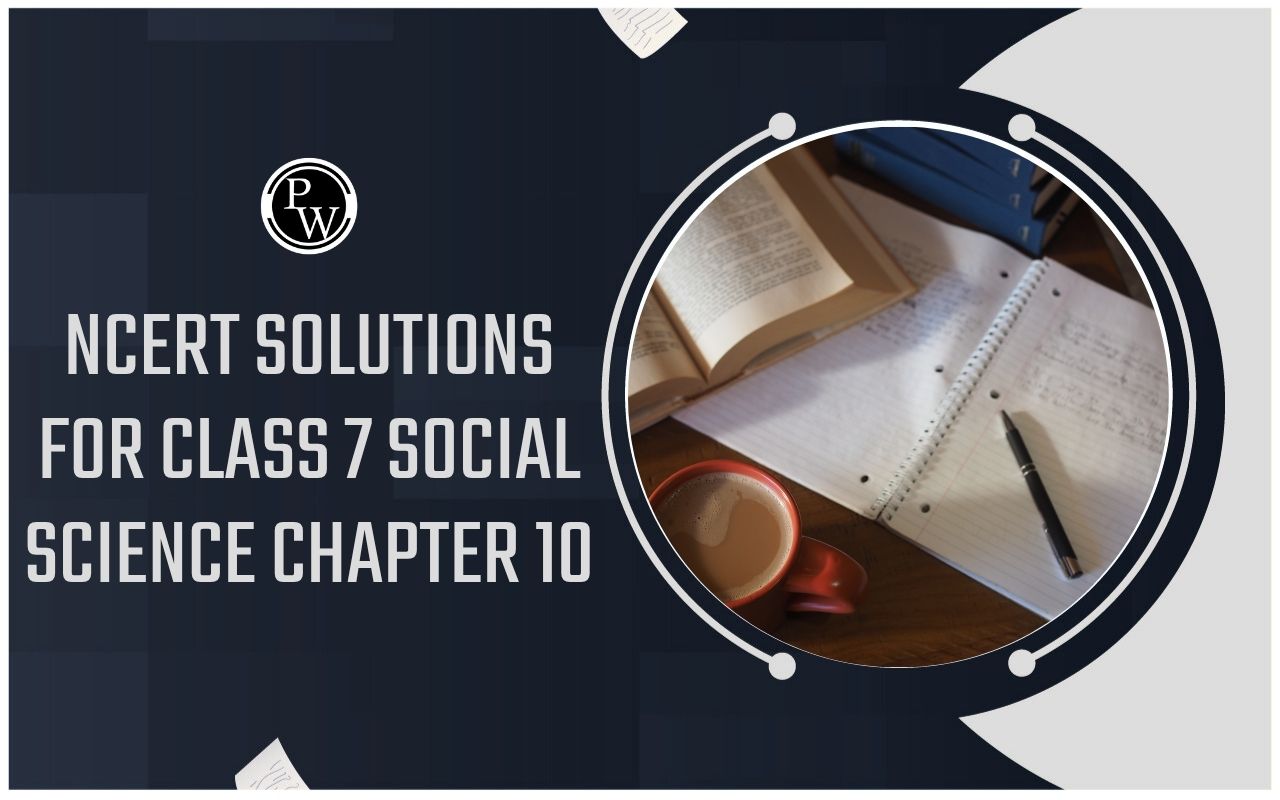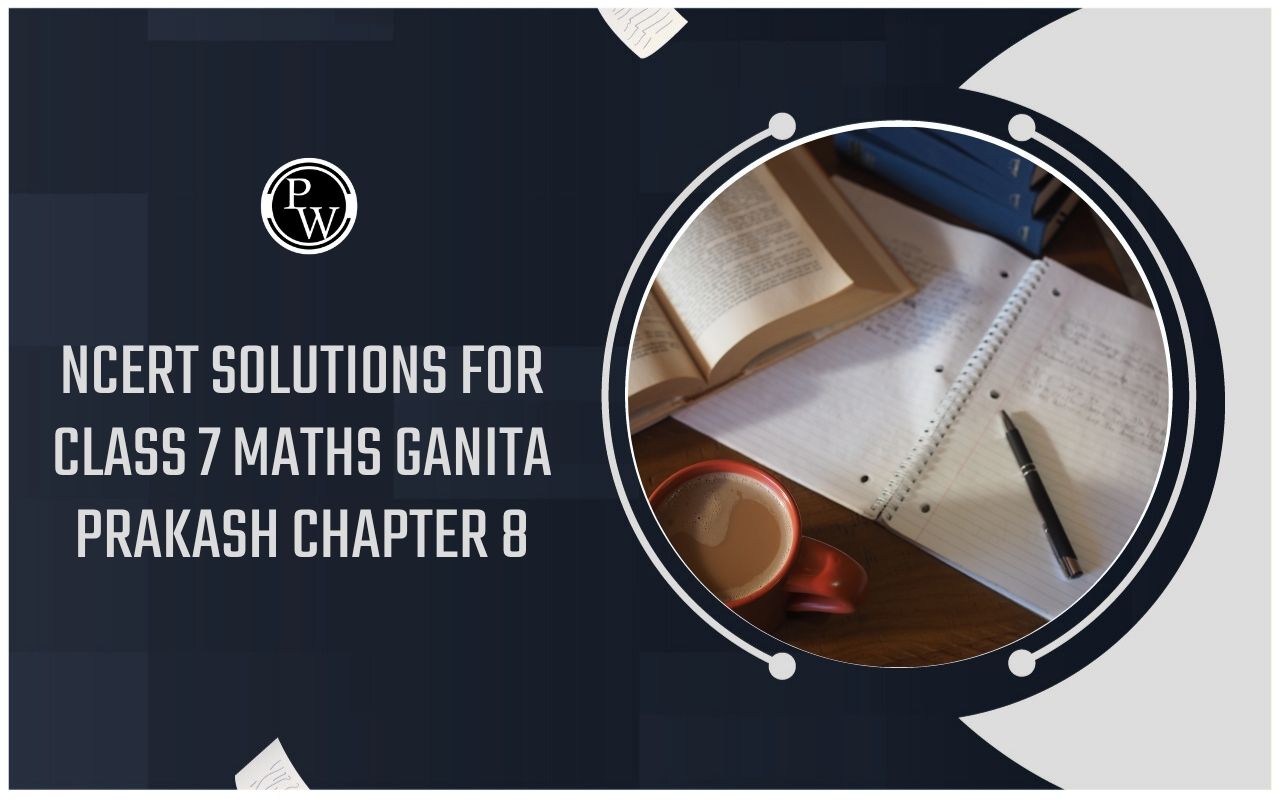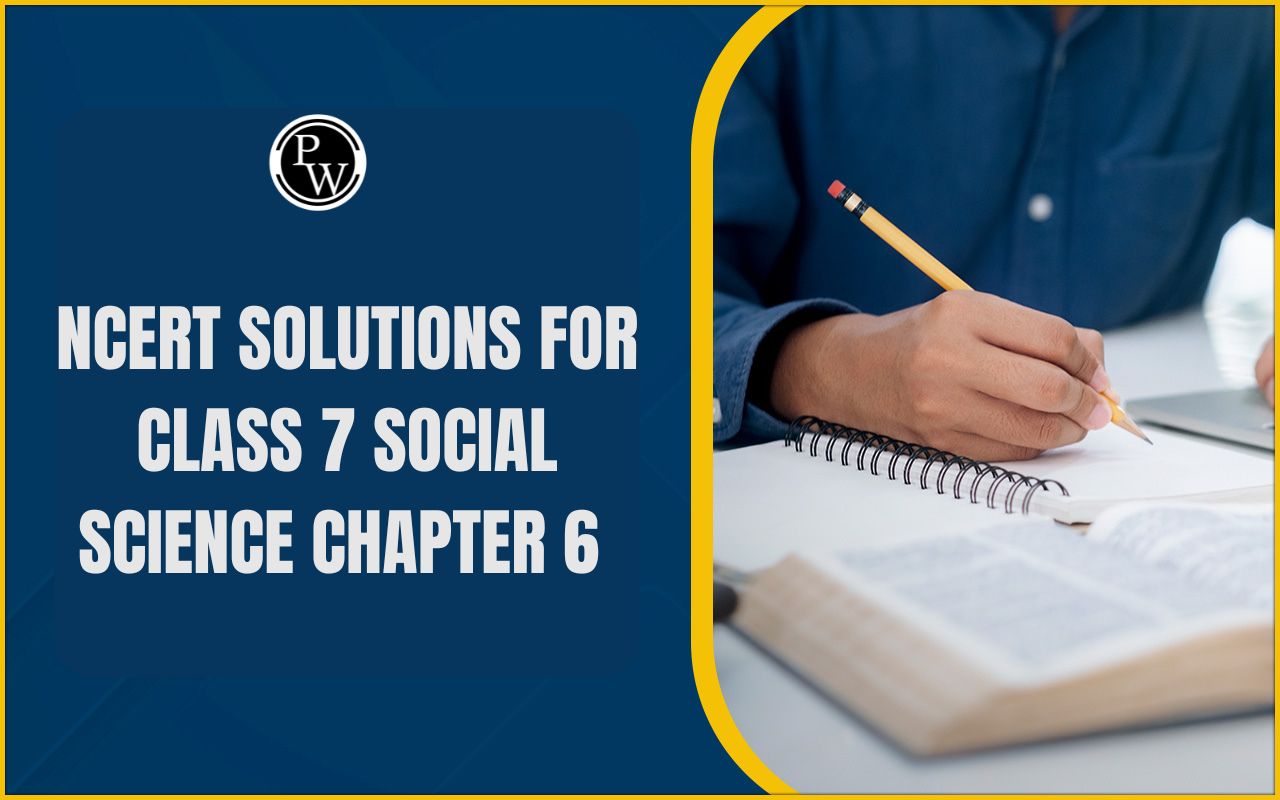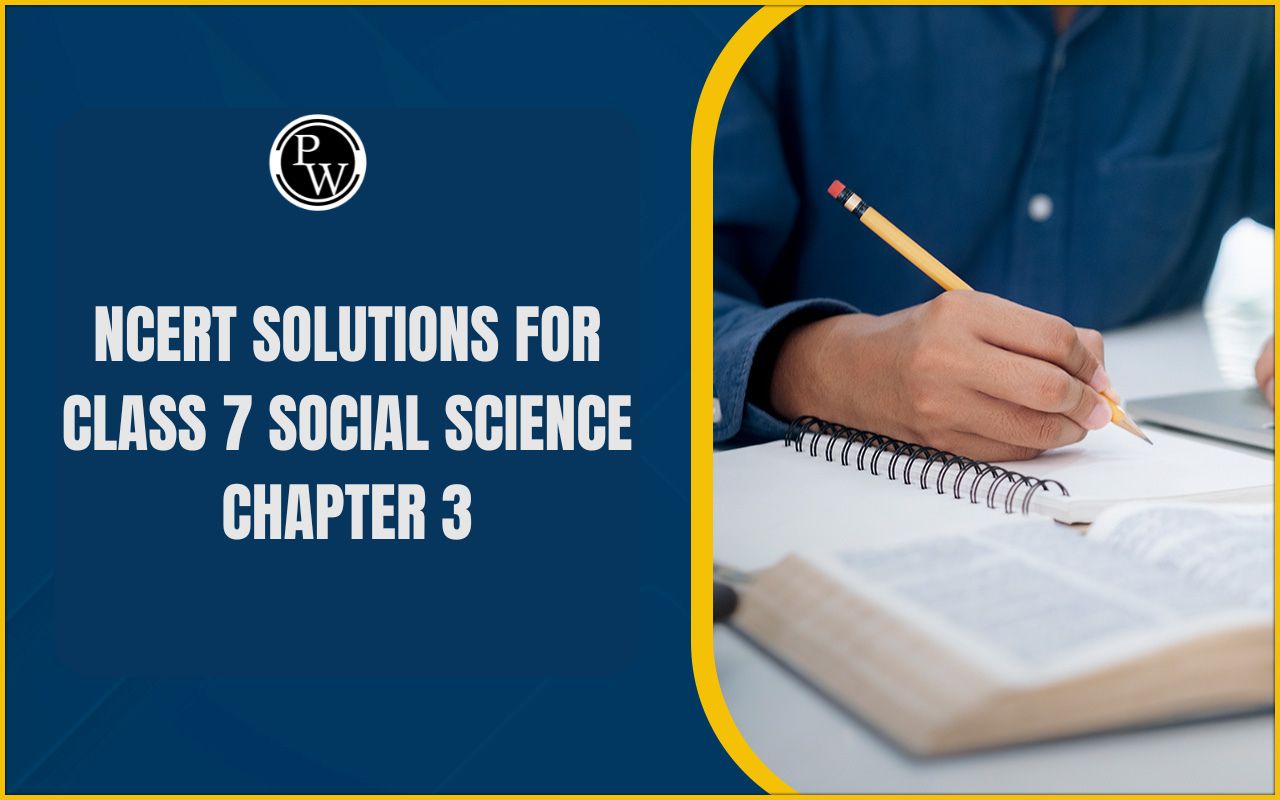
NCERT Solutions for Class 7 English Poorvi Chapter 3 are designed to help students understand the chapter "Three Days to See" in an easy and meaningful way. These solutions are based on the latest Class 7 English syllabus and provide detailed answers to all the textbook questions.
The chapter is a powerful piece written by Helen Keller, where she imagines what she would do if she were given the gift of sight for just three days. The Chapter 3 Three Days to See Question Answer section helps students understand her thoughts and feelings better. With these solutions, learners can improve their writing, comprehension, and exam preparation confidently.
Class 7 English Poorvi Chapter 3 Three Days to See
Chapter 3 Three Days to See is a touching and inspiring piece written by Helen Keller, who was both blind and deaf. In this chapter, she imagines what she would do if she could see for just three days. She talks about how we often take our senses for granted and encourages us to appreciate the beauty around us — like nature, people, books, and more.
This chapter teaches us the value of life and the importance of using our time wisely. The NCERT Solutions for Class 7 English Poorvi Chapter 3 help students understand Helen’s feelings and thoughts in a simple way. These answers are based on the latest syllabus and will guide you in writing better answers in exams.
NCERT Class 7 English Chapter 3 Question Answer
Below are the NCERT Solutions for class 7 English Chapter 3 three days to see question answers that will help students understand the chapter better.
Three Days to See Question Answer – Let us do these activities before we read. (Page 28)
I. Work in pairs. Recall a visit to a place that you liked. Discuss the details of that place and write about the following:
Suggestive answers:
Question 1. Name of the place:
Answer:
Qutub Minar.
Question 2. The Person(s) you went with
Answer:
Family.
Question 3. The things that you could:
-
See
-
listen
-
smell
-
taste
-
touch and feel.
Answer:
-
See: I saw the tall Qutub Minar, beautiful carvings on the walls, and green gardens around it.
-
Listen: I heard the sound of people walking, birds singing, and the tour guide talking.
-
Smell: I smelled fresh grass and the slightly dusty smell of old stones.
-
Taste: I ate some snacks like roasted peanuts from the nearby stalls.
-
Touch and feel: I touched the cool stone walls of the monument and felt the soft grass under my feet.
II. How does this memory make you feel?
Answer:
This memory makes me feel happy and calm. I liked seeing the monument and spending time with my family. I also learned some interesting things about history.
III. Do you think your visit/experience would be different if you could not see or hear? Share your answers with your classmates and the teacher.
Did you know that our five senses are essential for us to experience and make sense of the world around us?
Answer:
Yes, it would be very different. If I couldn't see I would have to use my hands to feel the monument. If I couldn’t hear I would miss the stories the guide was telling.
Now I understand that our five senses are very important. They help us enjoy and understand the world around us.
Three Days to See Class 7 Question Answer – Let us discuss (Pages 31-32)
Question 1. The author expresses a deep longing to experience the world through the sense of hearing.
Answer:
False:
Question 2. The author would like exploring the city only to observe how people are suffering.
Answer:
False:
Question 3. The author would spend the first day seeing the people whose kind-heartedness and friendship have enriched her life.
Answer:
True:
Question 4. The author acknowledges that even in three days, she would not be able to see everything.
Answer:
True:
Question 5. The author feels that everyone can find the greatest joy merely by the sensg of touch.
Answer:
False:
Question 6. The author advises those who can see to appreciate every moment as if they might lose their senses tomorrow.
Answer:
True:
Question 7. On the third day, the author would like to observe people in their daily lives and understand their experiences.
Answer:
True:
II. Complete the table given below with what Helen Keller wanted to do on the three days if she had sight.
Answer:
|
Day 1 |
Day 2 |
Day 3 |
|
She wanted to see the people she loved — her friends and those who made her life special. |
She wanted to wake up early, watch the sunrise, and visit museums to learn about the world and human history. |
She wanted to watch how people live and work every day, and understand their lives by seeing them. |
III. The author says that you need eyes to be able to ‘see’ the true self of a person. Therefore, she refers to the eye as ‘window of the soul’. How is the narrator able to understand the feelings of a person?
Answer:
Even though the narrator cannot see, she understands people’s feelings by using her sense of touch.
She gently touches their faces and can feel if they are happy, sad, or worried. This helps her know their emotions. She proves that we don’t always need eyes to understand someone we can feel it in other ways too.
Class 7 English Three Days to See Question Answer – Let us think and reflect (Pages 32-33)
I. Read the extracts given below and answer the questions that follow.
Question 1. I feel the delicate symmetry of a leaf. I pass my hands lovingly about the smooth skin of a silver birch, or the rough, shaggy bark of a pine. In spring, I t0uch the branches of trees hopefully in search of a bud, the first sign of awakening Nature after her winter’s sleep. Occasionally, I am very fortunate; I place my hand gently on a small tree and feel the happy quiver of a bird in full song.
(i) What does the ‘delicate symmetry of a leaf symbolise?
Answer:
It shows how neat, balanced, and beautifully designed nature is.
(ii) List two phrases from the extract that describe the texture of objects in nature.
Answer:
The smooth skin of a silver birch
The rough, shaggy bark of a pine
(iii) Complete the sentence appropriately.
The phrase ‘awakening Nature after her winter’s sleep’ refers to _________.
Answer:
The phrase ‘awakening Nature after her winter’s sleep’ refers to the beginning of spring, when trees and plants start growing again after winter.
(iv) What is the tone of the writer in this extract?
A. nostalgic
B. proud
C. admiring
D. celebratory
Answer:
C. Admiring — The writer is showing love and respect for nature.
Question 2. The next day I should arise with the dawn and see the thrilling miracle by which night is transformed into day. I should behold with awe the magnificent panorama of light with which the sun awakens the sleeping earth. This day I should devote to a hasty glimpse of the world, past and present. I should want to see the pageant of man’s progress, and so I should go to the museums.
(i) The word ‘thrilling’ has been used with ‘miracle’.
Which of the following words does not match with the word “thrilling’?
A. experience
B. tale
C. knowledge
D. adventure
Answer:
C. Knowledge
(ii) Why does the writer refer to the earth as ‘sleeping earth’?
Answer:
The writer refers to the earth as “sleeping earth” to symbolise the state of rest and inactivity before dawn transforms it into life and activity.
(iii) Complete the sentence with an appropriate reason.
The writer wishes to dedicate the day to a brief look at the present and past world because _________.
Answer:
...because she wants to see how humans have changed and grown over time by visiting museums.
(iv) Why does the writer use ‘should’ multiple times in the extract?
Answer:
She uses the word “should” again and again to share what she would like to do if she could see.
II. Answer the following questions.
Question 1. The sense of touch makes up for the loss of sight and hearing. Explain this statement with reference to the text.
Answer:
Since the author cannot see or hear, she uses her sense of touch to feel things around her. By touching people’s faces, trees, and objects, she understands how they look and feel. This helps her connect with the world in her own special way.
Question 2. Why does the author believe that the sense of sight is the most wonderful?
Answer:
She thinks sight is the most wonderful sense because it lets us see the beauty of nature, colors, people’s faces, and everything around us. It shows us a world full of color and life.
Question 3. How might the author’s opinion on making the most of our senses guide us to be kinder towards people with special abilities?
Answer:
Her thoughts help us understand how lucky we are to have our senses. This can make us more caring and respectful towards people who don’t have the same abilities.
Question 4. What is the significance of imagining the loss of a sense, according to the author?
Answer:
When we imagine losing a sense, like sight or hearing, we realize how important it is. This helps us enjoy and value the senses we do have even more.
Question 5. How does the author encourage people to approach their everyday sensory experiences?
Answer:
She tells us to enjoy everything we see, hear, touch, taste, and smell. We should notice the little things and be thankful for them every day.
Question 6. What do the author’s choices for the three days tell us about her values and priorities?
Answer:
Her choices show that she cares deeply about people, nature, learning, and everyday life. She is thankful and curious about the world around her.
Three Days to See Class 7 Questions and Answers – Let us learn (Pages 34-35)
GOLDEN GRAMMAR TIPS
Modal verbs are helping (auxiliary) verbs that express the mood, possibility, necessity, ability, permission or obligation of the main verb.
They are used with the base form of the main verb (without ‘to’).
Some common modal verbs are: can (ability/permission), could (polite request), may (permission/possibility), might (possibility), shall (suggestion / future), should (advice / obligation), will (future / promise), must (necessity/strong obligation).
Identify the modal verbs in the following sentences. Choose the functions they express from those given in the box below.
1. You can learn a lot from this experience.
2. They might arrive late due to traffic.
3. She must finish her homework before dinner.
4. They ought to apologise for their mistake.
5. He would like to have some lassi, please.
Answer:
The functions they express are:
1. can – Ability
2. might – Possibility
3. must – Necessity
4. ought – Moral obligation
5. would – Polite request
Read the situations in Column 1 and functions in Column 2. Fill in the blanks in the sentences in Column 4 with appropriate modal verbs from Column 3. After filling in the blanks, explain the function of each modal verb you used to your classmates and the teacher.
Answer:
|
Situation (Column |
Function (Column 2) |
Sentence with Modal (Column 4) |
|
You want to borrow a book from your teacher. |
Permission |
May I borrow this book, ma’am? |
|
It is important to reach school on time. |
Obligation |
We must reach school on time. |
|
Your friend is not well; you are giving advice. |
Advice |
You should take rest. |
|
You are unsure if your cousin will attend your party. |
Possibility |
My cousin may come to the party. |
|
You are ordering food politely at a restaurant. |
Polite request |
Would you please get me a glass of water? |
|
You are talking about what’s right. |
Moral obligation |
We ought to help the poor. |
|
You want to tell someone what you are able to do. |
Ability |
I can solve this puzzle easily. |
Three Days to See Question Answer Class 7 – Let us listen (Page 36)
You will listen to a conversation between a mother and son. As you listen, select four true statements from 1-7 given below. (Transcript for the teacher on NCERT textbook page. 41)
table-3
Answer:
1. True – Anuj wants to know what a screen reader is and how it helps blind people use computers.
2. False – The mother is confident that the school has good facilities for students who cannot see.
3. True – Anuj says that Digital India is about being able to use computers.
4. True – The mother tells Anuj about special tools called assistive technologies that help people with disabilities.
5. False – Anuj didn’t know that blind people can use computers. His mother told him this.
6. False – The mother explained assistive technologies when Anuj asked about Digital India.
7. True – The mother believes that using computers can make life better for people who are visually impaired.
Class 7 English Chapter 3 Question Answer – Let us Speak (Pages 36-37)
Work in pairs. Take turns to speak for a minute on any one of the senses you value the most. Use the given prompts to frame your response before you speak.
-
I value my sense of sight/sound/ touch/smell/taste the most because…
-
One of my favourite experiences is…
-
This is so because…
-
I appreciate being able to see/hear/ touch / smell / taste…
-
God forbid, if I were to lose the sense of sight/sound/touch/smell/taste, it would make me feel…
-
I would not be able to…
-
I thank God that I am able to see/ hear / touch / smell / taste.
Remember to
-
speak clearly and confidently
-
glance at your notes for reference rather than reading
-
make eye contact
-
use gestures if you wish to
-
pronounce words clearly and avoid mumbling
-
speak at a steady, moderate pace
Answer:
I value my sense of sight the most because it helps me see the world around me. I can enjoy beautiful things like flowers, trees, the sky, and the faces of my family and friends.
One of my favourite experiences is watching the sunrise from a hill. The sky becomes full of lovely colours like orange, pink, and gold. It makes me feel calm and happy.
I feel lucky to be able to see my loved ones and understand their feelings by just looking at their faces.
God forbid, if I ever lost my sight, I would feel very sad. I wouldn’t be able to read books, enjoy nature, or see the people I care about.
I thank God every day that I can see and enjoy the beauty around me. It truly makes life more joyful.
NCERT Class 7 English Poorvi Chapter 3 Question Answer – Let us write (Page 37)
A descriptive paragraph describes a person, place, object or event to create a memorable experience for the reader. Write a descriptive paragraph describing a place that you visited recently.
Follow the guidelines given below to draft this paragraph.
1. In the opening line, begin with something interesting to capture the reader’s attention. Introduce the place you visited.
2. In the supporting lines, describe the place using adjectives and specific details that appealed to your five senses—sight, sound, smell, taste, and touch. You may include alliterations, similes, and personifications to hold the reader’s attention.
3. In the concluding lines, summarise the description to provide a final impression. Mention what was the most important thing about that place which others should also experience.
Answer:
Last month, I visited a beautiful hill station that felt like a dream. The tall green pine trees stood all around, swaying gently in the breeze as if whispering secrets to each other. The air was fresh and cool, filled with the sweet smell of wildflowers and pine.
I could hear birds singing and the soft sound of a stream nearby, which made everything feel calm and peaceful. The stone path under my feet was cool, and the warm sun felt nice on my face.
I stopped at a small cafe and had a buttery croissant that was soft and tasty it almost melted in my mouth. In the evening, I climbed to the top of a hill and watched the sunset paint the sky in orange, pink, and red.
The best thing about this place was how quiet and peaceful it was. It is a perfect spot for anyone who wants to relax and enjoy the beauty of nature away from the busy city.
Class 7th English Chapter 3 Day the River Spoke Question Answer – Let us Explore (Pages 37-38)
I. Do you know how persons with visual challenges are able to read and write? They read through touch with the help of Braille, a code of raised dots that represents the letters of the alphabet. This tactile code was developed over a period of nine years by Louis Braille, who became blind at a very young age due to an accident.
Answer:
Students to do as directed in the question.
II. Have you heard about the International Day of Persons with Disabilities? Find out when and how it is observed in India. Write your findings on a sheet and put it up on the class board.
Answer:
The International Day of Persons with Disabilities is celebrated every year on December 3rd. It helps people understand the challenges faced by persons with disabilities and reminds us to treat them with kindness and respect.
In India, this day is observed through programs like the Accessible India Campaign, which makes buildings, transport, and technology easier to use for everyone. There are also schemes like the Deendayal Divyangjan Rehabilitation Scheme to help people with disabilities get education, jobs, and a better life.
This day is a reminder that we must include and support everyone in our society.
NCERT Solutions for Class 7 English Poorvi Chapter 3 PDF Download
Students can download the class 7 english poorvi chapter 3 question answer pdf from the link given below. The PDF includes all question answers in an easy-to-understand format and follows the latest CBSE syllabus. It is a helpful resource for quick revision and exam preparation.
NCERT Solutions for Class 7 English Poorvi Chapter 3
Study without using the internet
Benefits of Using NCERT Solutions for Class 7 English Poorvi Chapter 3
Here are the Benefits of Using NCERT Solutions for Class 7 English Poorvi Chapter 3:
- Covers all important textbook questions with clear and accurate answers.
- Helps you understand the chapter’s message and theme easily.
- Makes it easier to write better answers in tests and school exams.
- Follows the latest CBSE syllabus, so you stay on the right track.
- Saves time during revision with point-wise and well-structured answers.
- Boosts confidence by improving reading, comprehension, and vocabulary.
NCERT Solutions for Class 7 English Poorvi Chapter 3 FAQs
What is the name of Chapter 3 in Class 7 English Poorvi book?
Who is the author of the chapter Three Days to See?
What is the main idea of Three Days to See?
How can NCERT Solutions for Class 7 English Poorvi Chapter 3 help in exam preparation?

